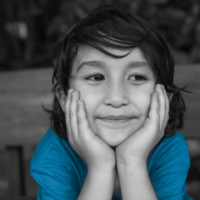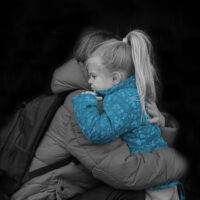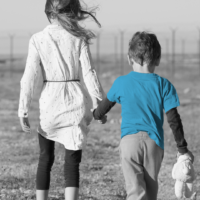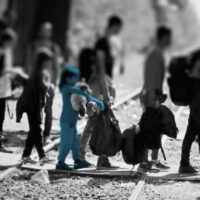Adverse Childhood Experiences (ACEs) are defined as situations that lead to an elevated risk of children and young people experiencing damaging impacts on their health and other social outcomes across the life course.
ACEs – Adverse Childhood Experiences
-

Mindful Emotion Coaching
Bookings closed.
This free session is the fourth of ACAMH’s ACEs Special Interest Group Monthly seminars, which is open to all. Dr. Sarah Temple draws on her experience as a GP to share a neurodiversity inclusive, trauma-informed approach to wellness.- Event type
- ACEs SIG Monthly seminars
- Location
- LIVE STREAM
-

Trauma & Looked After Children
ACAMH in collaboration with Child and Family Training (C&FT) and Improved Futures (IF) present a series of Briefing Seminars on ‘Dealing with distress, restoring well-being, and promoting resilience of Looked After Children and young people who have suffered extensive trauma’.
- Event type
- 4 x 2 hour webinars
- Location
- LIVE STREAM
-

Adverse Childhood Experiences for schools – a MindEd e-learning Training (recording)
This free session was the second of ACAMH’s Adverse Childhood Experiences (ACEs) Special Interest Group Monthly seminars. In this session we discussed ‘Adverse Childhood Experiences for schools – a MindEd e-learning Training’.
Read more -

Effects of maternal childhood trauma on child emotional health: maternal mental health and frontoamygdala pathways
Paper from the JCPP – “Experiences of early life adversity pose significant psychological and physical health risks to exposed individuals”. Jessica P. Uy et al.
Read more -

Working with Unaccompanied Asylum-Seeking Young People – recording
This free session was the first of ACAMH’s Adverse Childhood Experiences (ACEs) Special Interest Group Monthly seminars, it discussed ‘Working with Unaccompanied Asylum-Seeking Young People’. Presentations were from Dr. Ana Draper and Elisa Marcellino, Dr. Arnon Bentovim, Carol Jolliffe, and Sue Holmes.
Read more -

Psychological legacies of intergenerational trauma under South African apartheid: Prenatal stress predicts greater vulnerability to the psychological impacts of future stress exposure during late adolescence and early adulthood in Soweto, South Africa
We evaluate the intergenerational effects of prenatal stress experienced during apartheid on psychiatric morbidity among children at ages 17–18 and also assess the moderating effects of maternal age, social support, and past household adversity. Andrew Wooyoung Kim (pic) et al. Includes podcast link
Read more -

Join our ACEs SIG and Forum
Anyone can now join our Adverse Childhood Experiences Special Interest Group, completely free! ACAMH members can log in to the website and participate in discussions on the SIG Forum. If you’re not an ACAMH member (yet!), you will need to register to use the Forum first.
Read more -
ACEs eNewsletters
We’ll be bringing you the latest news on ACEs, and then discussing these in the ACES SIG Forum, so do please register to use the ACEs Forum.
Read more -

Military conflict and its impact on children – recording
This free webinar forms part of our series of resources relating to the impact of ‘Conflict and War’. Dr. Stephanie Lewis hosted talks from Professor Dennis Ougrin, Professor Rachel Calam, Professor Mina Fazel, and Professor Andrea Danese. ACAMH members can now receive a CPD certificate for watching this recorded lecture.
Read more -

The future of research on Adverse Childhood Experiences: a panel discussion – recording
Our Special Interest Group on Adverse Childhood Experiences (ACEs) launched with a online panel discussion, and audience Q & A, discussing and identifying the key priorities for future research on ACEs. Dr. Jessie Baldwin (pic) chaired the discussion. ACAMH members can now receive a CPD certificate for watching this recorded lecture.
Read more